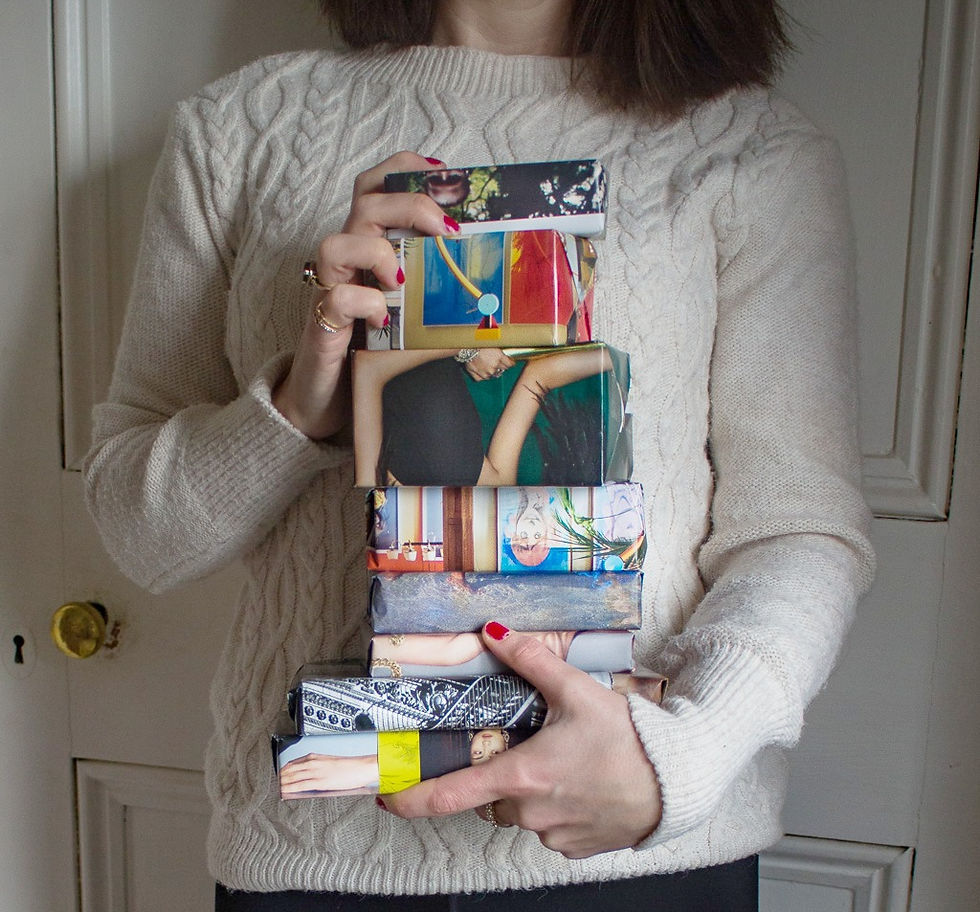TOP WELLNESS TRENDS FOR 2017
- The Honest Project
- Dec 16, 2016
- 4 min read

Improved health and wellbeing is a top New Year resolution for many and so now is the prefect time to look at some of the health and wellness trends that are set to dominate in 2017. Over the past few years, healthy living has become a big trend. While certain elements of it such as 'clean eating' has faced an element of backlash, it seems that all in all, we are moving towards making healthier eating choices and becoming increasingly focused on looking after our wellbeing. I'm saving my top foods trends for 2017 for an entirely separate post, but today, I thought I'd take a look at what's next in the world of wellness (non-food related).
Here goes....
1. Staying in is the new going out
Lifestyle crazes such as hygge are making the allure of staying in more appealing than going out. It's now perfectly acceptable to do nothing all weekend long. Many of the things we used to go out for are now available in the comfort of our homes. Food delivery options are better than ever before, and you can have pretty much order any type of food you want delivered to your kitchen table. Going to the cinema is no longer necessary when we can steam any film we choose straight to our laptops and watch it in our PJs. We don't need to go out to socialise or to date when we can do these on social networks and dating apps. All the reasons to go out are now available to us on demand through apps on our phones or on our laptops (provided we are not on a digital detox of course - see number 4 below).
2. Sobriety is on trend
With more and more people adopting a clean living lifestyle, people want health, toned limbs and glowing skin more than late night partying. Add to this the fact that people are no longer prepared to accept hangovers as a necessary part of socialising and the result is that we are increasingly choosing to socialise sober. Think yoga brunches, hikes, coffee dates, etc. It's not about never drinking again, it's about being more selective when we do drink. Take the example of a gin and tonic. We want to drink a particular gin, with a particular tonic, in a specific glass with the perfect accompaniment. It's about savouring a small number of perfectly made drinks as opposed to drinking a larger volume of medicore drinks. We've even seen this trend creep into the festive season where once the 12 pubs of Christmas was practically obligatory, it is now seen by many as a socially unacceptable thing to do.
3. Clean Beauty
The beauty industry is adapting to meet the requirements of a growing amount of consumers who desire more natural beauty products. With people becoming more conscious of the foods they eat, it makes sense that this trend follows through into the beauty products they use. Expect organic, food-grade beauty products to become more widely available. Spas are also going green with an increased focus on natural products and treatments.
4. Digital Detoxes
As many of us are on our phones from morning to night, it's no surprise that we are starting to question whether this constant online presence is good for us. Being constantly tuned into our phones can negatively affect our relationships, our work, our education and our emotional health. We are re-evaluating how much time we spend online and realising that we may need help switching off from our phones. Digital detox consultants are available to hire and you can even book yourself into a digital detox retreat for the weekend. It's likely that people will also begin to streamline their social media presence and become more selective about when and how often they tune in.
5. Wellness holidays
Wellness holidays are already big business and expect this trend to continue. Whether it's yoga holidays, juice cleanses, bootcamps or walking holidays, people want to immerse themselves in whatever wellness activity they chose to adopt. Wellness holidays are seen as a way to kick start a healthier lifestyle, as well as a way to escape from the stress and anxiety of everyday life. More and more people are choosing to partake in these holidays solo to allow them to really focus on their individual objectives.
6. Minimalism
Marie Kondo's book, The Life-Changing Magic of Tidying Up; The Japanese Art of Decluttering and Organising has made minimalism fashionable. People are choosing to live in smaller homes, to downsize their wardrobes and to buy less 'stuff'. There are TV shows dedicated to the practice of 'decluttering' people's lives and you can even hire a 'decluttering consultant' to help you do just this. Millennials in particular are seeking out this minimalist lifestyle. Buying too much 'stuff' is seen as wasteful. People are choosing to spend their money on experiences rather than things and when they do buy things, there is a move to buying a smaller amount of expensive items rather than lots of cheap items that we really don't need.
7. Workplace wellness
With people taking career breaks and sick leave due to burn out and stress, employers are becoming serious about supporting their employees' wellbeing through programmes centred around healthy eating, exercise and workplace counselling. Happy employees make for more productive employees. Corporate wellness retreats are becoming big businesses in their own right. This type of offering is now expected by employees rather than seen as a bonus.
8. Wellness influenced consumer choices
We not only want to eat well, to exercise and to wear natural cosmetics, we also want to know that the brands we are buying are also embracing personal and community wellness. We want to know that they care about food waste and are doing something to reduce it. We want to know that they pay their staff a living wage and care about their wellbeing. We want to know that they sell ethically produced products. We want them to be transparent and authentic in everything they do. We want the businesses we support to in turn support our community and our environment so we can fell good about spending our money there.
Image credit: Kristopher Allison, via unsplash.com






Comments